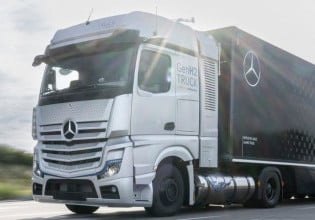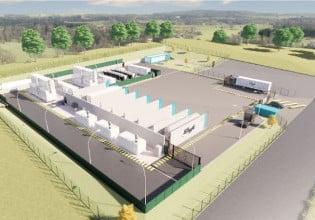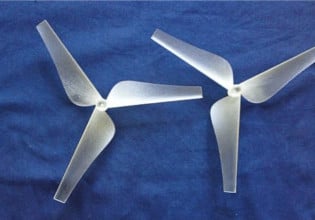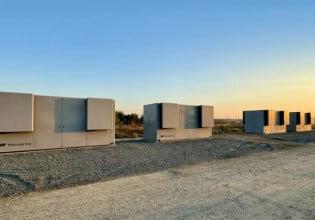MHI Develops ‘VOLTANK’ Portable Power Supply Featuring Li-ion Batteries
Mitsubishi Heavy Industries, Ltd. (MHI) has developed and commenced marketing of a small-scale portable power supply featuring Li-ion rechargeable batteries developed in-house. Dubbed the 'VOLTANK ML500i', the unit is easy to transport and to install and can be used with electrical equipment having maximum output up to 500W. In the case of a laptop computer, it enables approximately 15 hours of usage. MHI aims to explore demand in a wide range of applications, including as an emergency power supply for business continuity plans (BCP) and as a portable power supply for outdoor events.
The VOLTANK ML500i weighs approx. 13 kilograms (kg) and is 180 millimeters (mm) in width, 270 mm in depth and 400 mm in height. Each unit incorporates three MLiX Li-ion rechargeable batteries with high energy capacity density developed for power storage applications. Effective capacity is 360 watt-hours (Wh). As self-discharge is extremely low, the VOLTANK ML500i can serve as a reliable emergency power supply even when left standing for a prolonged period. For safety, VOLTANK adopts various safety functions, including overcharge prevention.
Ever since the Great East Japan Earthquake of March 2011, there have been strong calls for the need to secure emergency power sources for information systems, etc. as a corporate BCP measure. In many instances, however, cost difficulties hinder the introduction of multiple large-scale power supply units for distributed installation. The small-scale, portable VOLTANK ML500i is viewed as the resolution to such cost obstacles.
The VOLTANK ML500i is being manufactured and marketed by Mitsubishi Heavy Industries Engine Systems Co., Ltd., a wholly owned subsidiary of MHI based in Tokyo, which also manufactures and markets a small-scale portable power supply featuring engine. Therefore, the company is being able to respond a much wider range of customer's needs. Initially the system will be marketed to the corporate sector primarily as a BCP measure to cope with cases where the introduction of large-scale power sources is difficult, with subsequent plans calling for expansion into the general market.






